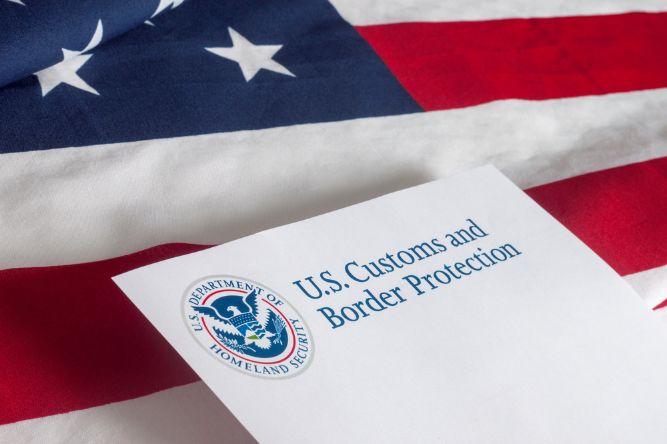
The border between Canada and the United States is the longest international border in the world – it’s often referred to as the world’s “longest undefended border”. As many Canadians have learned, however, “undefended” doesn’t mean “unguarded”. One cannot simply walk into the United States – you need to be granted entry.
U.S. Customs and Border Protection (CBP) can deny Canadian citizens and permanent residents entry to the United States. In this article, we’ll examine the most common reasons for being denied entry. From there, we’ll explain what recourse you may have (if any) when being denied entry.
Criminal inadmissibility
Committing a crime, be it in the United States, Canada, or any other country, can lead to criminal inadmissibility to the United States. Criminal inadmissibility is complex – you can be found inadmissible for crimes of moral turpitude, drug use, or for intent to engage in prostitution or crimes of commercialized vice (even if you intend to do so in areas where such activities are legal, like certain counties in Nevada).
This means your past criminal record in the States and abroad can lead to criminal inadmissibility, as can the intention to engage in acts that are illegal at the federal level (even if they’re legal on the state level). We’ll cover more information about one such activity, using marijuana, in another section.
If you believe you’ll be deemed inadmissible to the States for reasons of criminality, you do have options. The first is to seek a pardon, now known as a record suspension, in Canada. Record suspensions seal off your criminal records – this renders them inaccessible to the CBP. If, however, the CBP already knows about your criminal record, you’ll need to obtain a U.S. Entry Waiver instead.
At FASTCHECK, we offer fingerprinting for pardon applications and U.S. Entry Waivers. These fingerprints are necessary to obtain your criminal record.
Insufficient funds
To enter the US, you’ll need to have sufficient funds to cover food, accommodations, and other expenses during your stay. This is, of course, slightly subjective – if you’re couch-surfing and surviving off almost expired bagels, you might be able to stay in the States for very few dollars a day.
Of course, this isn’t the kind of tourism that our neighbours to the south want to attract – and that goes double if you’re playing on staying for an extended period with a visa. Make sure you have credit cards and bank statements handy, so you can prove that you have the means to enjoy your stay, however long it may be.
Medical inadmissibility
Medical inadmissibility is a contentious topic right now: COVID-19 vaccination status is one example of medical criteria for crossing the border. You must be fully vaccinated against COVID-19 to enter the U.S. by air – there are no such restrictions on land travel, however. (This information is up to date as of the time of writing, July 27th, 2022).
This is, of course, not the only reason CBP may deem you medically inadmissible. You can be found inadmissible if you have any communicable diseases of “public health significance”. The list of such diseases is broad and varied – anything from tuberculosis to gonorrhea can lead to denial of entry.
Lying
Do not lie to CBP staff. Don’t lie on your visa or ESTA application. Don’t even crack a joke when you’re crossing the border – border agents tend to be a pretty serious bunch. You can be denied entry for lying or even if you’re suspected of lying.
Border agents may ask you a question that you don’t want to answer. Do not lie, even if the truth is something that you believe will lead to denial of entry. Lying is worse – you do NOT want to enter the States under false pretences. Remember – if you don’t want to answer a question, you’re not obligated to. You may be denied entry for not answering the question, but it’s better than lying, and it may be better than admitting to activities that would get you denied at the border.
Suspicious activity
This is an incredibly broad category. All denials are left to the discretion of border agents and the CBP at large, and this includes activities that agents may deem suspicious.
Border agents have the right to ask you for your mobile device, laptop, and passwords to your social media accounts. Should they find anything they deem suspicious – anti-government sentiment, drug use, criminal activity, or other activity they feel is worth a denial – they may well deny you entry to the country.
For these reasons, it’s sometimes advisable to purge your social media and devices before crossing the border. Even pictures and videos that seem innocuous to you can lead to a denial – stay vigilant and always be mindful of your digital presence.
Drug use
With recreational cannabis now legal in Canada and legal in many states, there are quite a few Canadians who may think that admitting to marijuana use at the border won’t lead to denial of entry.
Marijuana is still illegal on the federal level in the United States. As such, admitting to marijuana use can lead to denial of entry. Some of you reading this may use cannabis recreationally. Should you be asked by the border guard about your marijuana use, DO NOT LIE. Instead, consider refusing to answer the question or telling the truth. Both of these options may lead to denial of entry, but it’s better than lying to a border agent.
Denial based on drug use applies to other recreational drugs that are illegal in the United States and Canada. Exceptions are often made, however, for drugs that are illegal to use recreationally but are legal to use with a prescription. As such, you may be allowed entry if you’ve been prescribed marijuana or other drugs (like amphetamines) for medical reasons.
Intent to immigrate illegally or work illegally
This one is fairly straightforward. If there isn’t sufficient evidence that you plan on leaving the United States, you may be denied entry.
You can mitigate the chances of being denied for this reason in a number of ways. Having a career, property (or a place you rent), and other ties to Canada is helpful. You should also be as precise as possible in describing your plans while in the States, as well as the date you intend to leave.
Improper documentation
When you plan on entering the United States with a visa or ESTA, it’s essential that your documentation is fully filled out and approved before you enter. These documents are quite complex. To avoid being denied entry for improper documentation, consider hiring an immigration lawyer to help you fill out and file the required documents.
Previous denial of entry
This may go without saying, but if you’ve previously been denied entry to the States, you may be denied entry again. When your denial was for things like medical inadmissibility or insufficient funds, you’re likely to be allowed entry as long as the cause of your denial has been resolved. Conversely, if you’re denied entry for lying or intending to immigrate illegally, you may find it much harder to enter. In these circumstances, you might consider obtaining a U.S. Entry Waiver.
Need your fingerprints taken before crossing the border? Call FASTCHECK
We offer RCMP fingerprinting for criminal record checks and fingerprinting services for visas, entry waivers, and other documents needed to enter the United States. Our fingerprinting services are fast and accurate – give us a call to book an appointment today!

Recent Comments